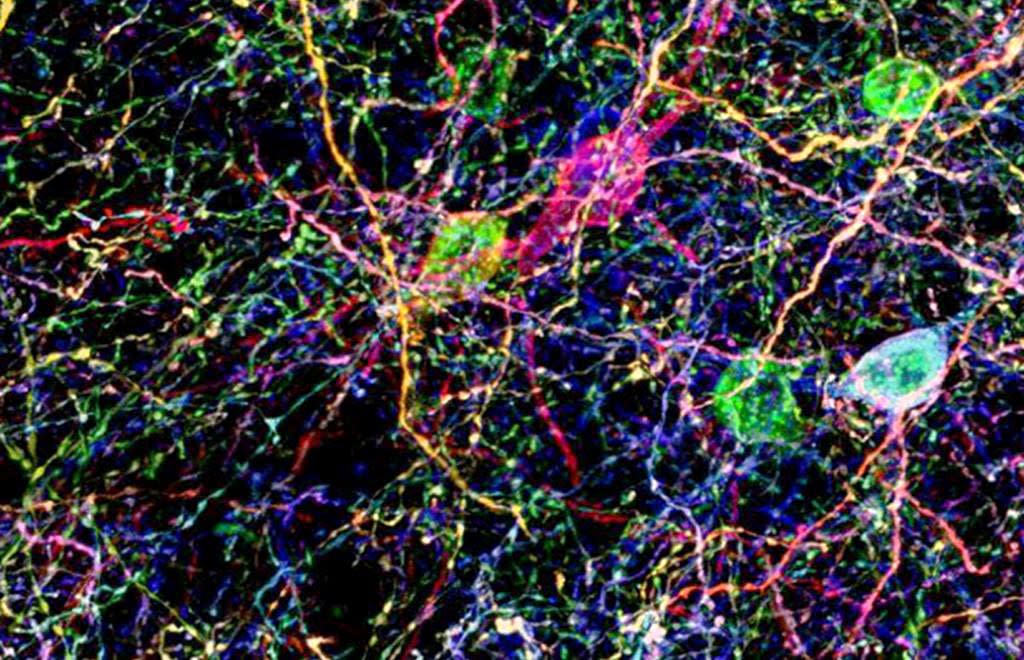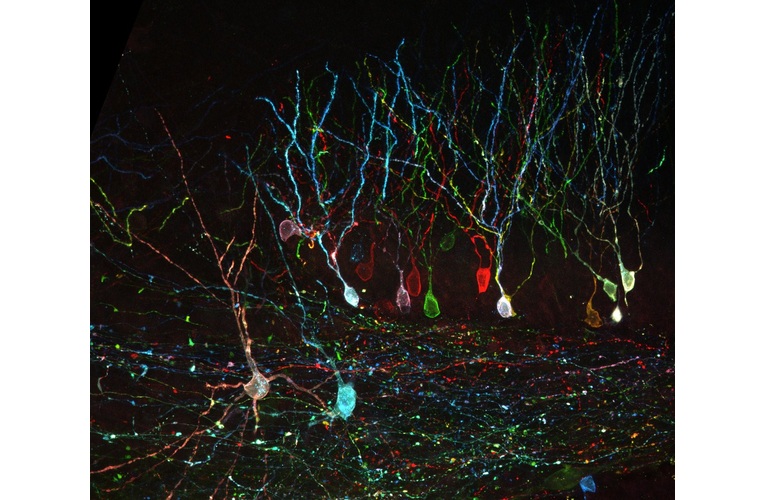Cat. #155262
Anti-mTFP (Chicken) “Brainbow”
Cat. #: 155262
Sub-type: Primary antibody
Unit size: 100 ul
Availability: 6-8 weeks
Target: mTFP
Class: Polyclonal
Application: IF ; IP ; WB
Host: Chicken
£300.00
This fee is applicable only for non-profit organisations. If you are a for-profit organisation or a researcher working on commercially-sponsored academic research, you will need to contact our licensing team for a commercial use license.
Contributor
Inventor: Dawen Cai
Institute: University of Michigan
Tool Details
*FOR RESEARCH USE ONLY (for other uses, please contact the licensing team)
- Name: Anti-mTFP (Chicken) “Brainbow”
- Research fields: Neurobiology
- Tool sub type: Primary antibody
- Class: Polyclonal
- Host: Chicken
- Application: IF ; IP ; WB
- Description: The mTFP polyclonal antibody is one of the Brainbow collection which has been used in a multicolor labelling strategy for the fluorescent imaging of neuronal circuits and individual neurons in mice, drosophila and zebrafish and non-neuronal cells in mice. The Brainbow toolkit allows scientists to image highly complex tissue structures by relying on a stochastic method for making different expression ratio combinations of fluorescent proteins so that structures in proximity can be resolved.
Target Details
- Target: mTFP
- Target background: mTFP is a fluorescent protein originated from coral (Clavularia sp.).
Applications
- Application: IF ; IP ; WB
Handling
- Format: Liquid
- Concentration: 0.9-1.1 mg/ml
- Unit size: 100 ul
- Storage buffer: Serum with 0.02% sodium azide
- Storage conditions: '-80° C
- Shipping conditions: Dry ice
Related Tools
- Related tools: "Brainbow" polyclonal antibodies ; Anti-mTFP (Rat) "Brainbow" polyclonal antibody ; Anti-mTFP (Rabbit) "Brainbow" polyclonal antibody
References
- Roossien et al. 2019. Bioinformatics. 35(18):3544-3546. PMID: 30715234.
- Chen et al. 2018. Mol Psychiatry. 23(7):1614-1625. PMID: 28761082.
- Takesian et al. 2018. Nat Neurosci. 21(2):218-227. PMID: 29358666.
- Roossien et al. 2017. Methods Mol Biol. 1642:211-228. PMID: 28815503.
- Manent et al. 2017. Oncogene. 36(40):5576-5592. PMID: 28581519.
- Chang et al. 2017. Nat Methods. 14(6):593-599. PMID: 28417997.
- Zanca et al. 2017. Genes Dev. 31(12):1212-1227. PMID: 28724615.
- Tillberg et al. 2016. Nat Biotechnol. 34(9):987-92. PMID: 27376584.
- Cai et al. 2013. Nat Methods. 10(6):540-7. PMID: 23817127.







